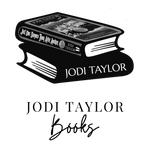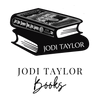History, True or False?
OK everyone – hope you’re all well and hanging in there.
Something quite serious today.
History and how important is it in our lives?
When I first started writing, back in 2011/2012 there was no such thing as Fake History. Yes, there was ‘spin’ of course, as politicians attempted to persuade us to regard their most recent disasters in a more favourable light, but most of us just laughed and went on our way.
It seemed to me while writing Just One Damned Thing After Another that I had to give historians a good reason for doing what they do – other than because they have a happy mix of every personality disorder known to man and a near terminal death wish, of course – so I simply had Dr Bairstow vaguely say that it was always important to know the truth. The often-inconvenient truth – not the religious, politically correct, politically expedient, written by the victors truth, but the real truth. Everyone at St Mary’s solemnly nodded their heads and cantered off to wreak more havoc on the already battered timeline.
It never occurred to me – not in a million years – that in such a short time we would move into the realms of real Fake History. Where sometimes the events of only last week could be denied/altered/ignored/misrepresented and so on. Right in front of our eyes, sometimes.
I was scribbling away the other day – a scribble a day keeps the electrodes away – and thinking about this because it’s a small part of the plot in Another Time – Another Place (the next St Mary's book). It seemed to me that because we can’t always trust our leaders – bless them – it is essential to know the truth.
And then – because I was born to argue – I thought, actually, is it? How important is it to know the truth?
Consider – Country A and Country B. They’re nice little countries, quite well off as countries go and the people are pleasant and friendly and you’d really like them if you ever met.
Except – they’ve been at war since the year dot. The history of all the military engagements is taught at school. Each side instructs their people not to trust the other. That they’re a bunch of treacherous fanatics who would sell their own grandmother if it suited them. Each side is brought up hating the other. They don’t fight all the time, of course, but every now and then it flares up – it’s the anniversary of the famous Massacre of Town C – conveniently ignoring the fact they lose more citizens in a week to road traffic accidents than to the supposed massacre which might never actually have occurred – and off they go again on the Treadmill of War.
Could it be argued that without a knowledge of previous history the inhabitants of each country would encounter each other with open minds and possibly quite like each other? The events of the past would literally be lost in the mists of time and without the Millstone of Memory around their necks, would they stop blowing each other to pieces and build trading and cultural relationships instead?
Or should we always remember our past? And if we do, are we intelligent and tolerant enough to rise above it?
Or should we actively change our past? Should the films and books of Countries A and B show them as equal and honourable partners, not only treating each other with respect now, but in the past as well. Wishful thinking, I know, and dangerous, too but does this give them something to aspire to?
Or would that be dishonouring all those who died in the conflict? Is this sweeping war and death under the carpet? As Max says, ‘Looking away when bad things happen does not mean that bad things cease to happen?’
Should their cultures reflect the way they wish things were – or the way they actually are? And if the latter – how do they move on?
If everyone from A and B woke up one morning with their memories erased – would this be such a bad thing? Is it ever acceptable to change history? I don’t just mean politicians spinning events to make things seem if not better, then at least less bad, but actually erase or rewrite history? Given that we seem doomed to repeat the same mistakes over and over again, what would happen if we were able to sever our link with the past and look only forwards? Or will we always find something to fight about?
On the other hand – did I mention I was born to argue? – if real history is to be swept aside who is to say what should replace it? A carefully edited version that everyone would be comfortable with? And if so, how long until someone dreamed up a better version and it’s replaced again. At least the old ‘warts and all’ history had one virtue – that of truth.
So – does history serve a useful purpose? Does it enable us to learn from our mistakes? Or is it actually a major factor in the never-ending wars of our species? Would we be better off without it?









I think one of the most defining things I saw as a child was a children’s programme (Blue Peter?) which showed a day when some Catholic children met some Protestant children in Northern Ireland. One of them commented, in complete amazement, “But they are just like us!” It blew me away that those kids literally had no idea that children on the other side of the sectarian divide were just like them. What damage was caused through that lack of human understanding.
Fake news has been around for a very long time. I learned at an early age to question (argue?) as to why I was being told (at school) to think a certain way… I even remember when it happened. I read two newspapers accounts of the same death of a young boy. I shan’t name the papers (equally as bad as each other), but in one the boy was stabbed and in the other he’d been shot. At least both agreed it had been accidental. I was only young, barely 10 (and an avid reader even then) and I realised we are “fed“ only ever a single viewpoint and you need to read deeply and widely to gain more than that regardless of the “reputable” source.
Let’s look at it this way – not everyone in school gets A’s on their papers. so not everyone learns what they’re taught. Does that mean that they shouldn’t be taught things as they really are? Just because we don’t always learned from history doesn’t mean that we shouldn’t, or at least have the chance.
As an American, living in the horrible realm of fake news, fake history and selfish wickedness of many of those in the White House, I have been thinking about this for several years. How so many fellow citizens can accept what those people are saying. And how civilizations fall. The challenge in having a carefully edited version of history is that not everyone will agree it is correct. As messy and idiotic as humans can be, I appreciate that the truth is remembered and considered important by most (??). That people attempt to use knowledge and truth to guide their decision making and understanding. That teachers (like me!) matter. That historians matter. That truth in all it’s challenges matters. Because Max is right; ‘Looking away when bad things happen does not mean that bad things cease to happen?’. And I like to think that maybe Clio is really still popping up to help us sometimes.
Reading this I think of George Orwell’s 1984. When does ‘spin’ turn in to propaganda? The enemy may change daily but our history teaches us they have been our enemy since the beginning.
Many a Hollywood history has twisted the events to make one nation look worse or better than another. Or turned history into fantasy. These are entraining but should entertainment be more important than the facts? Surely if we prioritise the entertainment we do injustice to those that were at the heart of historical events.
Specifically I think of the scene at Rouen and the burning of Joan of Arc. Someone had to witness it. Here in lies the importance of what St. Mary’s does. Dr Bairstow is right, it is important to know the truth. Humanity’s greatest and worst moments are there for us to learn from. Thanks to St. Mary’s I can never stand on a battle field or look up a historical building in the same way. Without think of the real lives that were gathered at this specific point in time.
Leave a comment